Indigenous Governance Database
Economic and Community Development
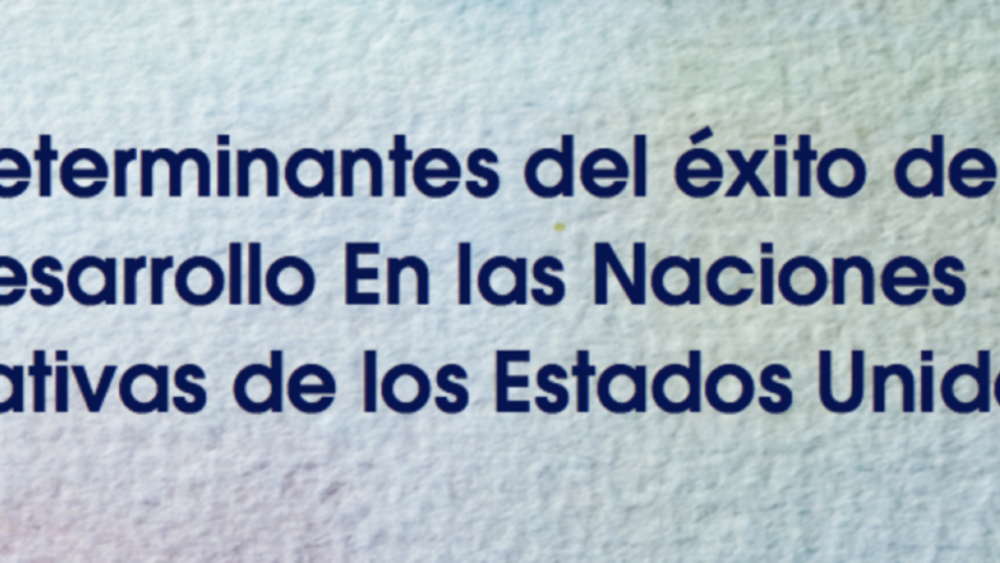
Determinantes del Éxito del desarrollo En las Naciones nativas de los Estados Unidos (Spanish)
La pobreza de los indígenas norteamericanos, especialmente los que viven en las reservaciones, han preocupado ambos políticos Indígenas y Federales por más de un siglo. Después de la fase de la fabricación del tratado y del establecimiento del sistema de reservación, las políticas federales para…
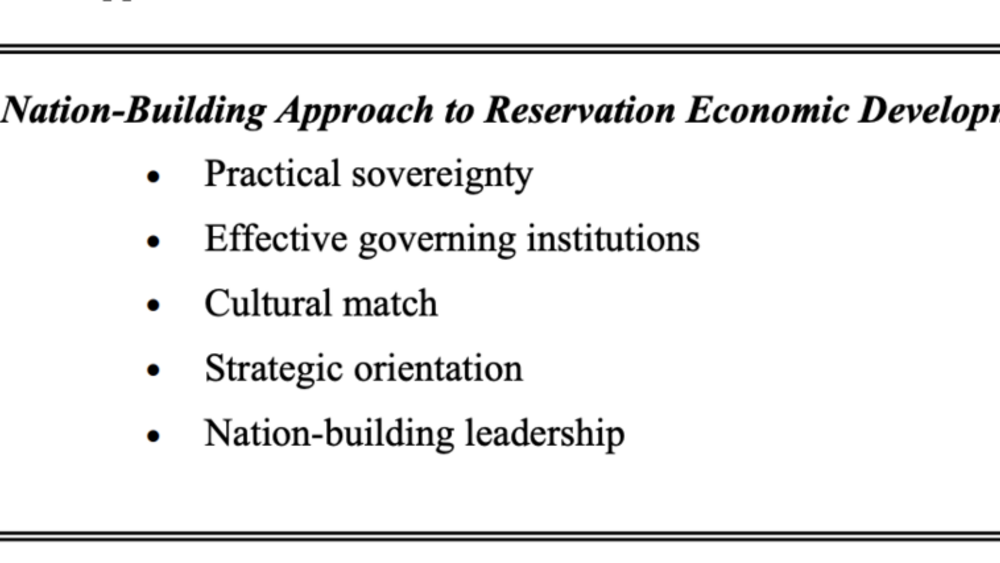
Two Approaches to Economic Development on American Indian Reservations: One Works, the Other Doesn't
As much of the world knows, American Indian nations are poor. What much of the world doesn't know is that in the last quarter century, a number of these nations have broken away from the prevailing pattern of poverty. They have moved aggressively to take control of their futures and rebuild their…
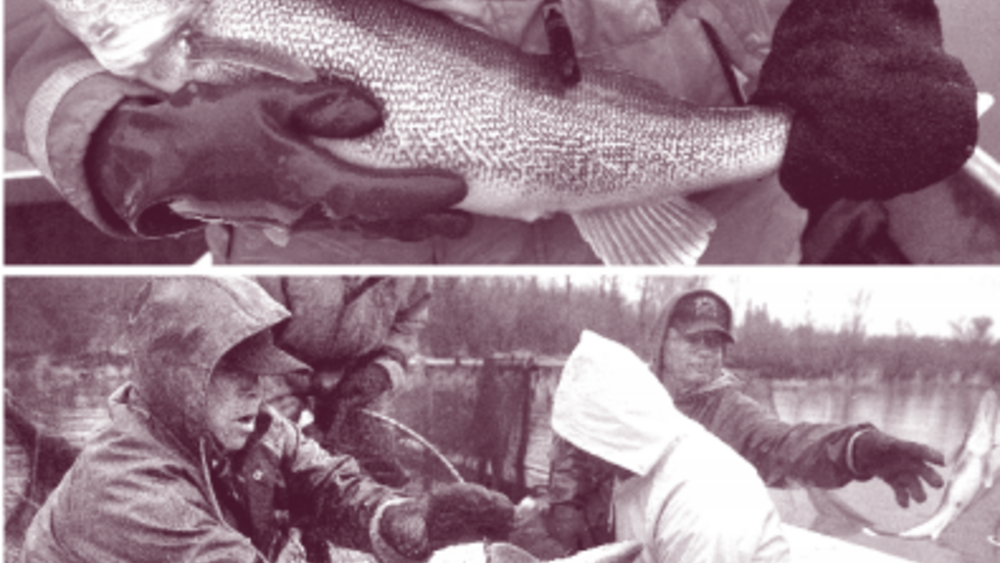
We Are the Stewards: Indigenous-Led Fisheries Innovation in North America
This paper offers an overview of the current state of Indigenous-led fisheries management in the United States and Canada. It summarizes major trends in Indigenous-led fisheries innovation in North America and presents common keys and challenges to the success of these efforts. It chronicles three…
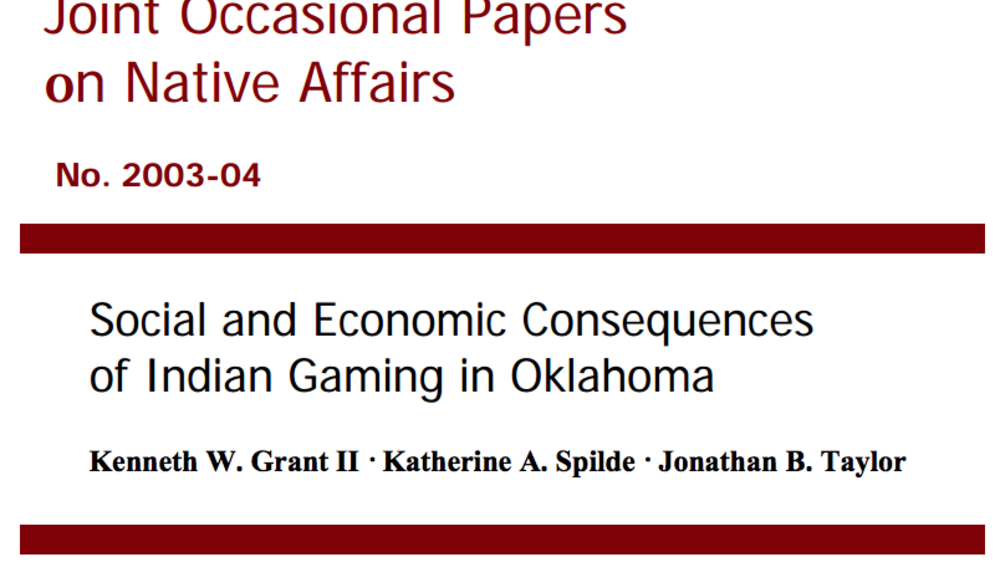
Social and Economic Consequences of Indian Gaming in Oklahoma
Much has been written in the mainstream press about Indian gaming and its impact on Indian and non-Indian communities. The debate, however, tends to be focused on Class III or “casino-style” gaming. The effects of Class II gaming have largely been overlooked by the press and, unfortunately, by the…

Indigenous Peoples, Poverty and Self-Determination in Australia, New Zealand, Canada and the United States
Australia, New Zealand, Canada and the United States are among the world’s wealthiest nations. It is an often noted irony–and an occasional source of embarrassment to the governments of these countries–that the Indigenous peoples within their borders are in each case among their poorest citizens.
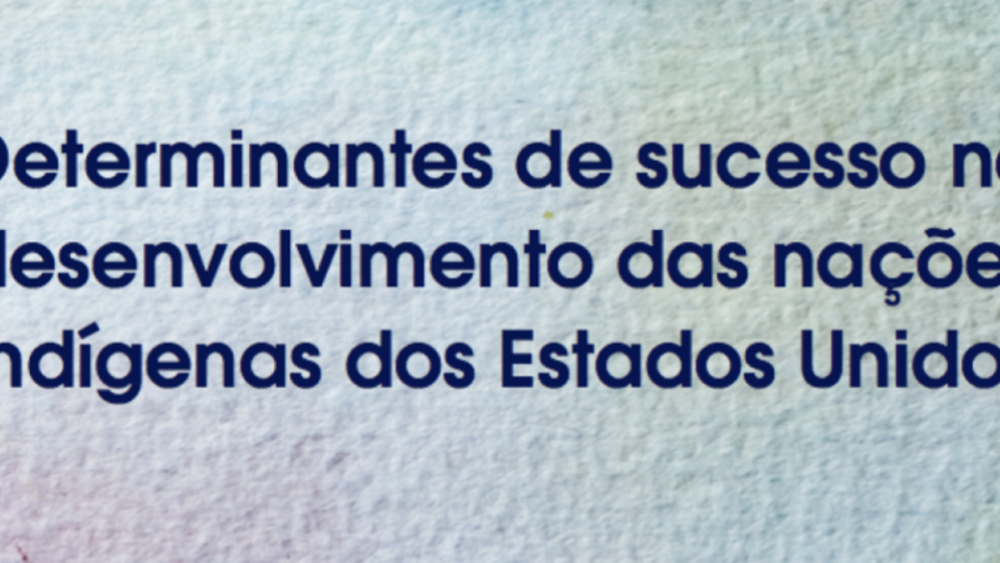
Determinantes de sucesso no desenvolvimentodas nacoes Indígenas dos Estados Unidos (Portuguese)
A pobreza dos indígenas norte-americanos, principalmente daqueles que vivem nas reservas, tem preocupado os responsáveis pela definição de políticas indígenas e federais por mais de um século. Depois da fase de negociação dos tratados e do estabelecimento do sistema de reservas, as medidas…
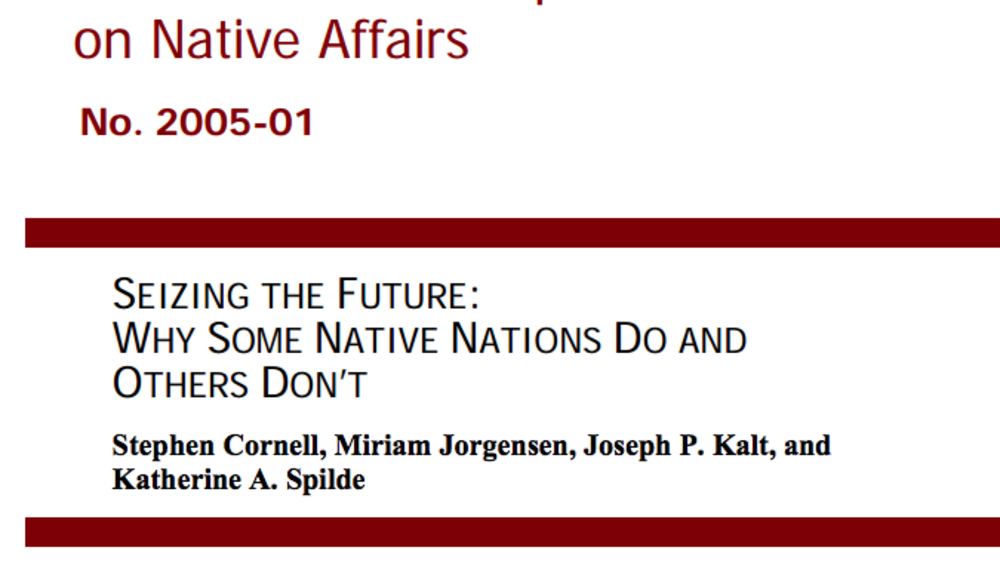
Seizing the Future: Why Some Native Nations Do and Others Don't
Both research and the experience among Native nations daily drive home the conclusion that the so-called "nation-building" approach holds the keys to self-determined social, political, and economic development for indigenous communities. This approach emphasizes the critical role of asserting…
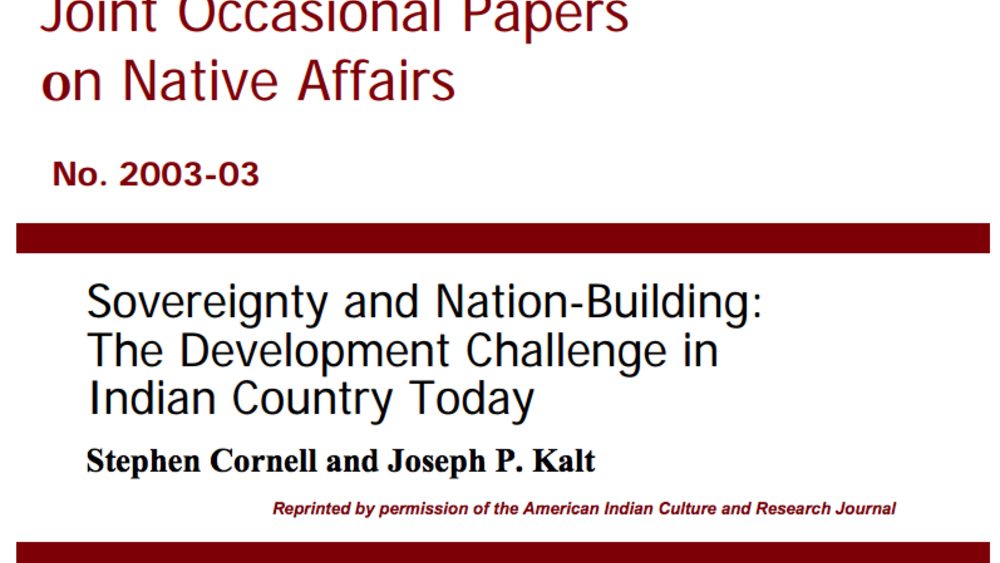
Sovereignty and Nation-Building: The Development Challenge in Indian Country Today
The Indian nations of the United States face a rare opportunity. This is not the occasional business opportunity of reservation legend, when some eager investor would arrive at tribal offices with a proposal guaranteed to produce millions of dollars for the tribe--although such investors still…
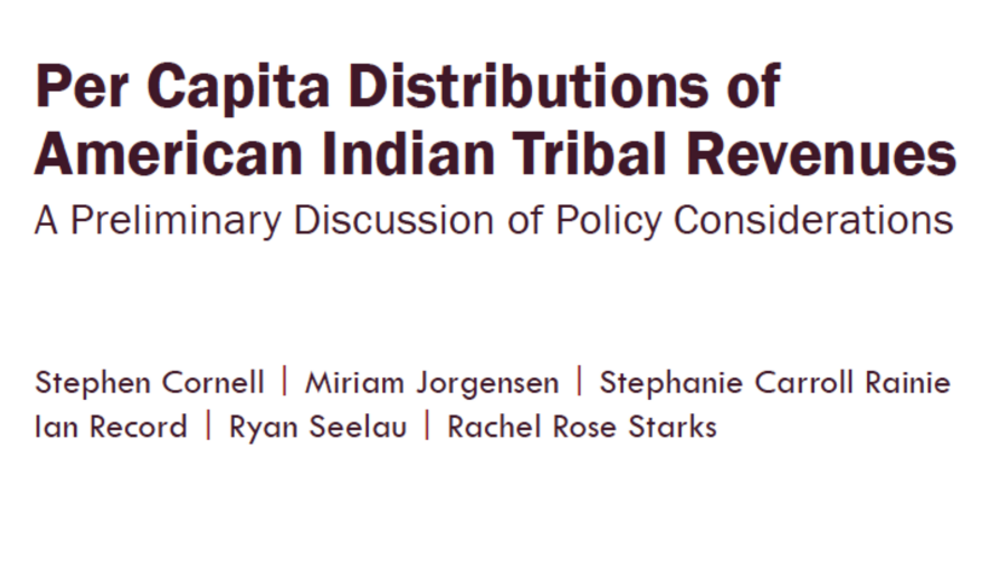
Per Capita Distributions of American Indian Tribal Revenues: A Preliminary Discussion of Policy Considerations
This paper examines policy considerations relevant to per capita distributions of tribal revenues. It offers Native nation leaders and citizens food for thought as they consider whether or not to issue per capita payments and, if they choose to do so, how to structure the distribution of funds and…

Bitsi' Yishtlizhii Dine'é Binaaish Binahji' Yéego Bee Bidziilgo Deiílyeedígíí
The poverty of Indigenous North Americans, especially those living on reservations, has concerned Indian and federal policymakers for more than a century. After the treaty-making phase and the establishment of the reservation system, federal policies to address Native poverty vacillated between…
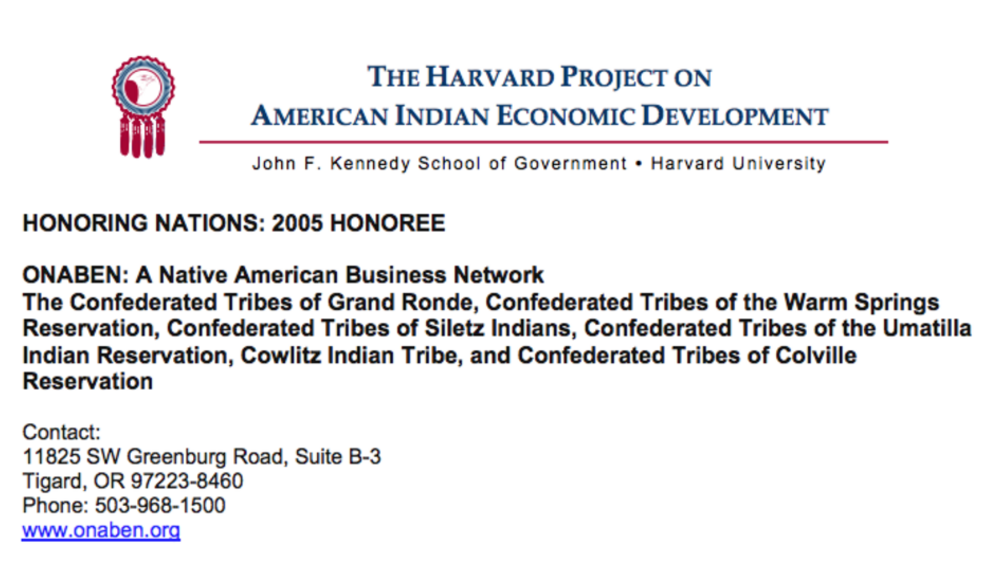
ONABEN: A Native American Business and Entrepreneurial Network
Founded by a consortium of Native nations in the Pacific Northwest, ONABEN's mission is to increase self-reliance by promoting the development of tribal-citizen-owned small businesses and the diversification of reservation economies. ONABEN's programs provide financial counseling, business…
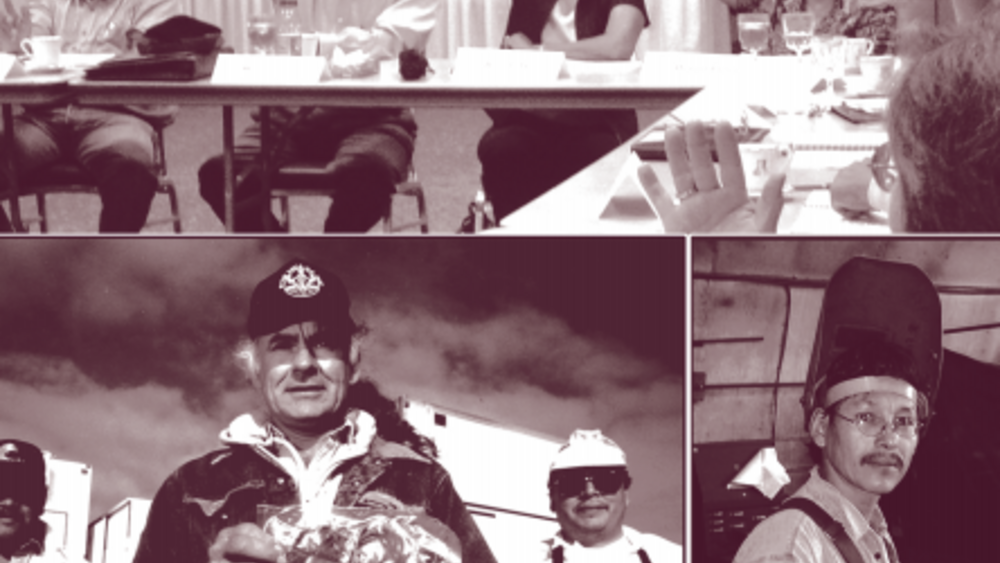
What Makes First Nations Enterprises Successful? Lessons from the Harvard Project
Some enterprises owned and operated by Native nations do well, and others don't. Of course this is true of all businesses--some succeed and others fail--and there are numerous reasons why. After all, building a successful business is a complex and challenging task. But in these and many other cases…
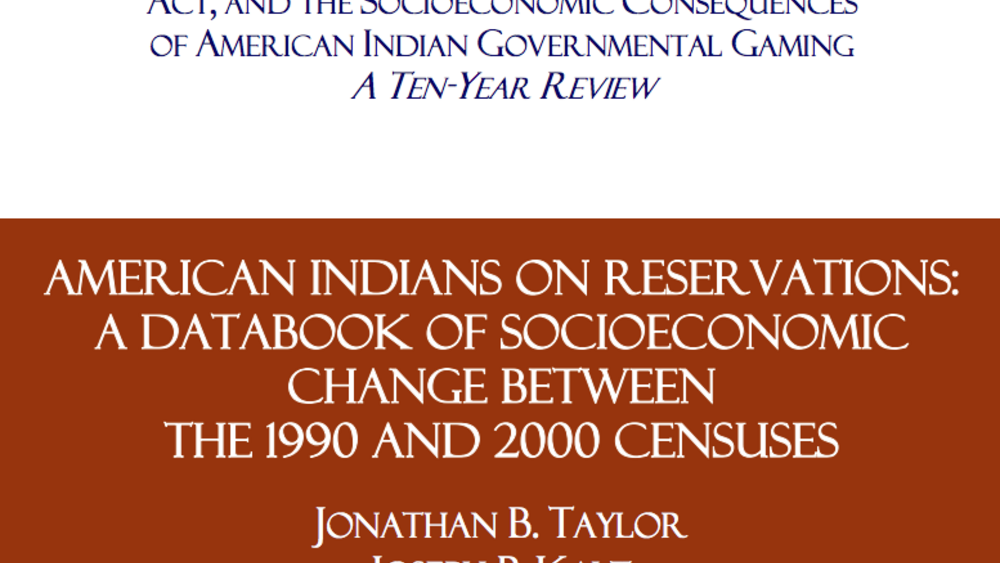
American Indians on Reservations: A Databook of Socioeconomic Change Between the 1990 and 2000 Censuses
This study compiles 1990 and 2000 U.S. Census data on Native Americans residing on reservations and in designated Indian statistical areas in the lower 48 U.S. States. Gaming and non- gaming areas are compared to each other and to the U.S. as a whole. Data on fifteen measures ranging from income…
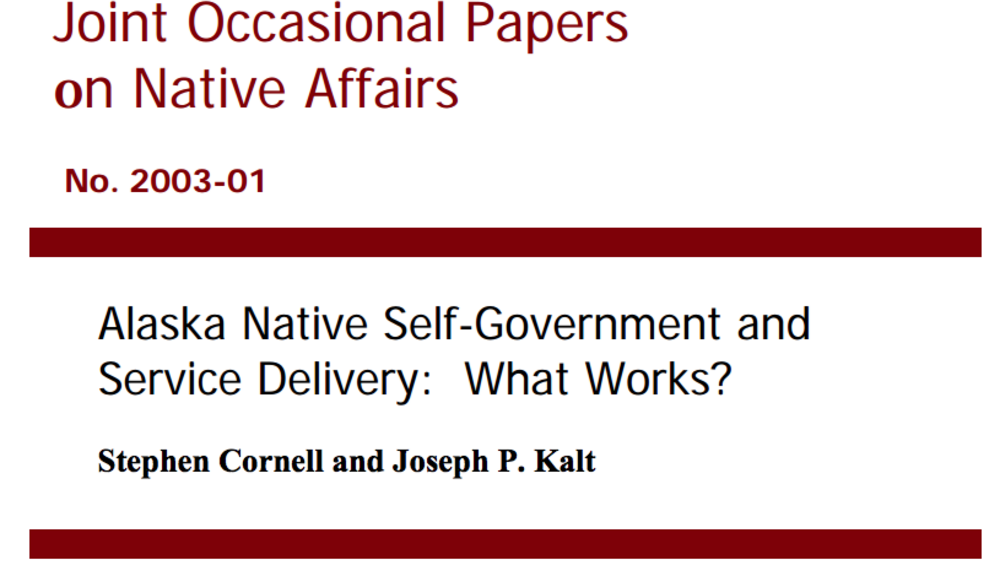
Alaska Native Self-Government and Service Delivery: What Works?
The Native peoples of Alaska have governed themselves for far longer than either the State of Alaska or the United States. Indeed, their rights of self-government are properly defended as basic human rights that are not unilaterally extinguishable by these other governments. Yet, today an…
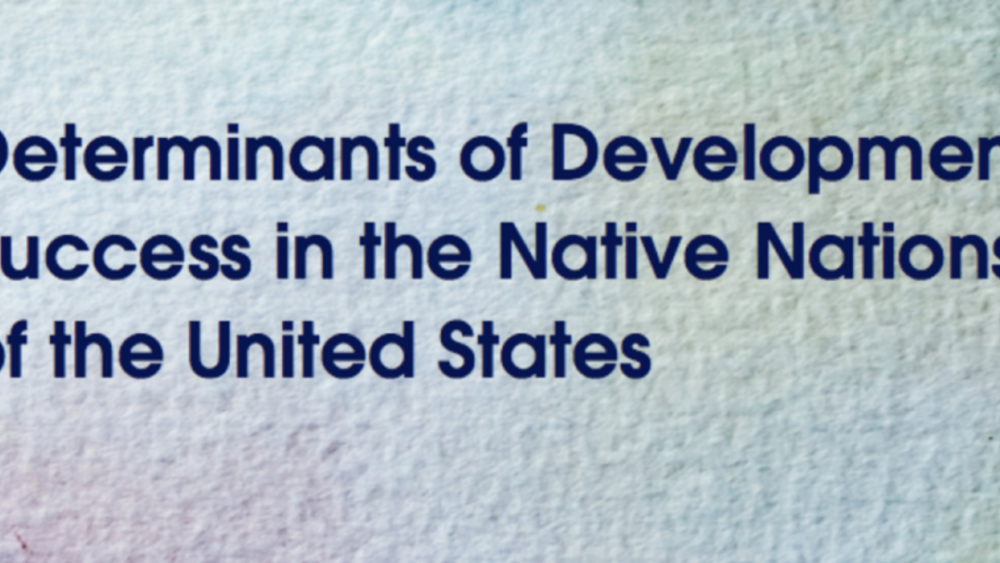
Determinants of Development Success in the Native Nations of the United States (English)
The poverty of indigenous North Americans, especially those living on reservations, has concerned Indian and federal policymakers for more than a century. After the treaty making phase and the establishment of the reservation system, federal policies to address Native poverty vacillated between…
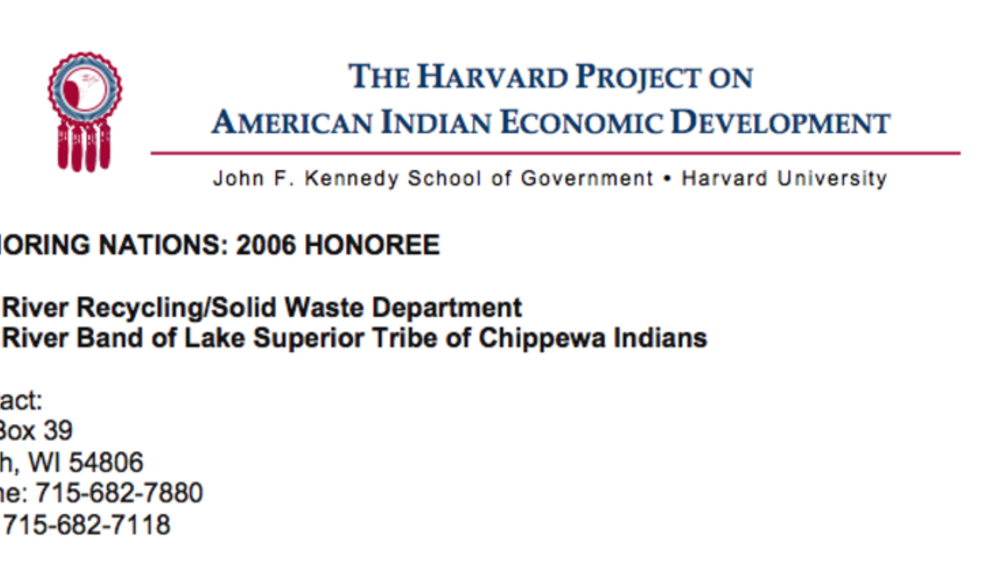
Bad River Recycling/Solid Waste Department
The Bad River Recycling/Solid Waste Department created environmentally sound practices of managing and disposing of waste generated on the reservation, ending cycles of harm to tribal citizens, lands, and water. Historically, waste was not only hazardous, but noticeable and abundant on reservation…
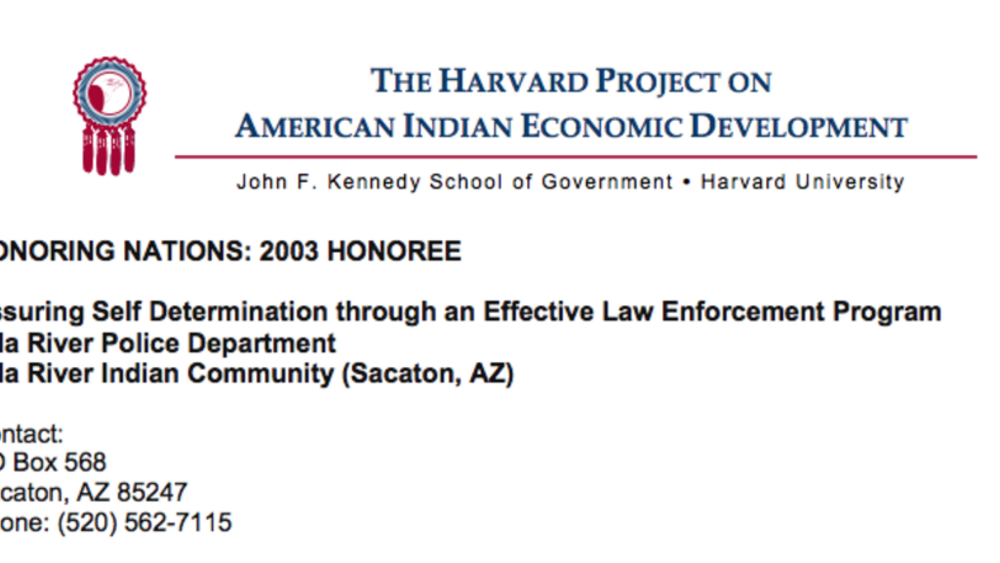
Gila River Law Enforcement Program
Serving a population of 17,000, the 92-employee Gila River Police Department operates a multifaceted law enforcement program that includes community-based policing, neighborhood block watch programs, a citizen’s police academy, and bike patrols. Since assuming control over law enforcement in 1998,…
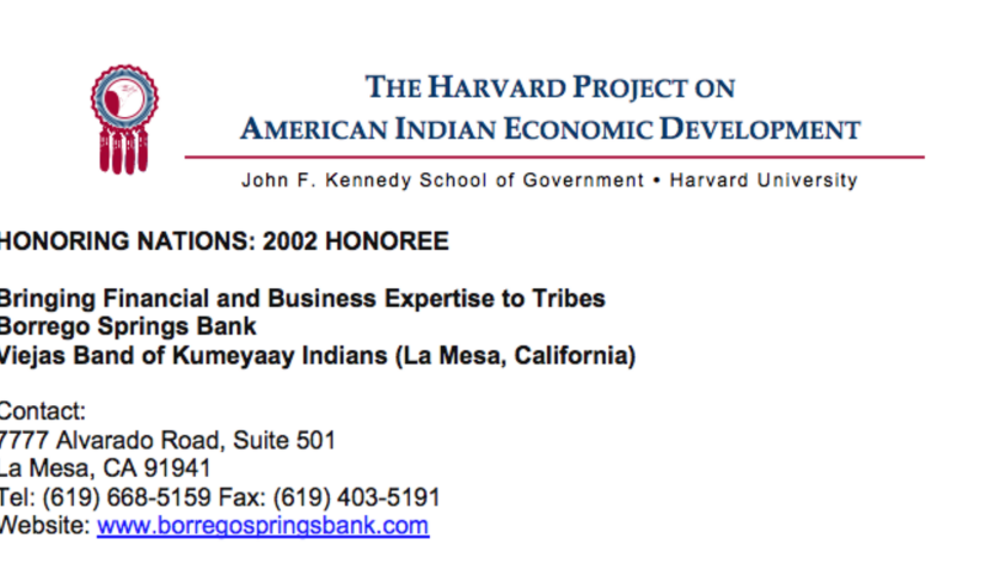
Borrego Springs Bank of the Viejas Band
The first American Indian-owned bank in California, the Borrego Springs Bank (BSB) offers a full range of services to tribal governments and Native-owned businesses in order to facilitate the entrepreneurial growth of American Indian tribes. With more than $74 million in assets and two full service…
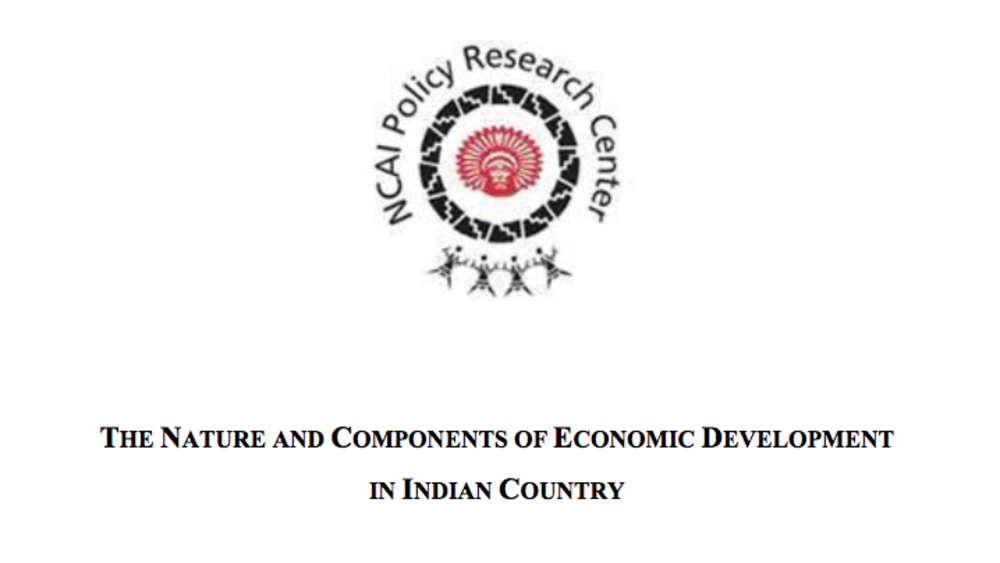
The Nature and Components of Economic Development in Indian Country
Defines what economic development means and how it applies in Indian Country; looks at the changing patterns of Indian Country economic development; debunks some of the myths and misconceptions about economic development in Native nations; suggests policy options for both Indigenous nations and the…
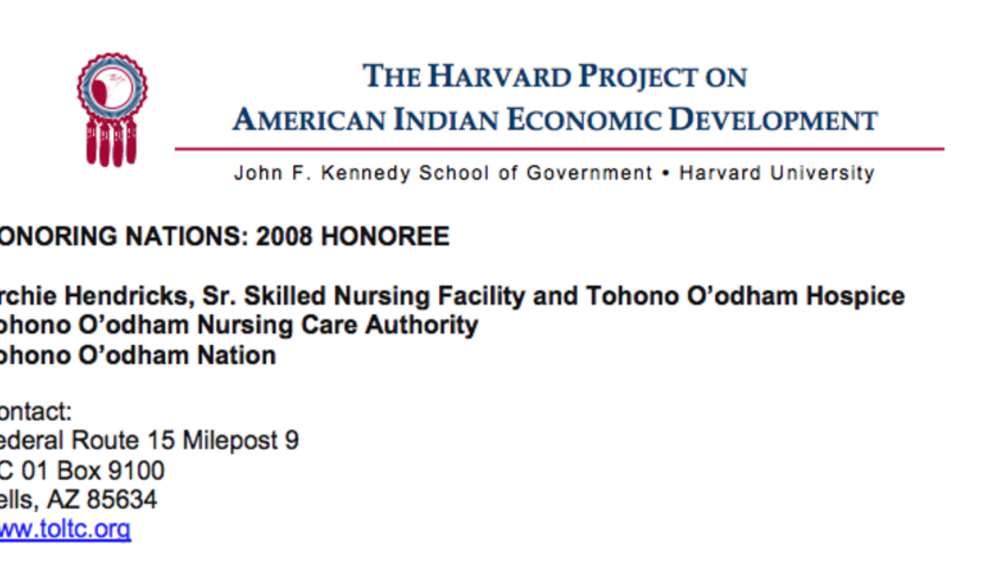
Archie Hendricks, Sr. Skilled Nursing Facility and Tohono O'odham Hospice
For decades Tohono O’odham elders in need of skilled nursing had to move far away from family and friends to receive care, or stay home and forgo long-term care services. However, with the opening of the Archie Hendricks, Sr. Skilled Nursing Facility, O’odham elders can now remain in the community…
Pagination
- First page
- …
- 5
- 6
- 7
- …
- Last page
